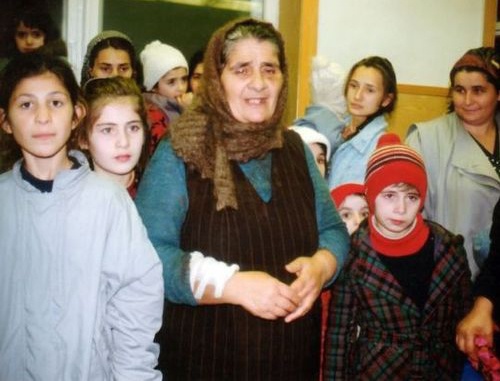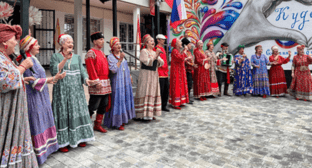
03 May 2011, 23:00
In Ingushetia, roundtable states systematic violations of IDPs' human rights
On April 27, the office of Ingush Ombudsman housed a roundtable "Legal status of certain categories of internally displaced persons (IDPs)". One of the main problems, according to its participants, is to resettle the people from their today's compact residence centres to homes with decent living conditions.
The event was held within a campaign on the problems of IDPs living in the territory of the region. It was attended by deputies of the People's Assembly of Ingushetia, officials of the local division of the Federal Migration Service (FMS), Ministry for PR and Interethnic Relations, Supreme Court of the Republic, Office of UN High Commissioner for Northern Caucasus and local human rights activists.
As stated by Dzhambulat Ozdoev, Ombudsman in Ingushetia, the debates were mainly around IDPs, who lost - in the course of various conflicts in the Caucasus - social ties with their society, remained without their property, and often without documents.
"We need to understand that a real human destiny stands behind every statistical unit, and someone's life; therefore, no enforcement in solving these problems is ever acceptable. In the course of the monitoring held in 2010 you could see that people live in humiliating conditions. Today, the leadership of the republic bears a burden of problems relating this category of citizens that remained unsolved for decades, aggravated by the complex political, social and economic situation," said Ozdoev.
State officials and NGOs activists exchanged their opinions on solution of resettlers' problems immigrants and discussed coordination of further collaboration. The Ombudsman's officials voiced their data of monitoring and analysis of judicial practice. According to them, the rights of this category of citizens are routinely violated. Quite often the FMS refuses to extend people's status of forced migrants, which deprives them of an essential part of material support and benefits.
Meanwhile, according to the data presented by the participants of the roundtable, the practice shows that courts in the vast majority of disputable cases (80 percent) are still provide applicants with this status, which, according to Ombudsman's employees, indicates systematic errors of the local FMS division.
Ruslan Parchiev, head of the human rights organization "Union of Genocide Victims", suggested that one of the reasons for violating IDPs' rights is the declarative nature of status extension, when people are often tired of gathering information and sick and tired of litigations; they give up the help of the state and stop believing its officials.
The officials from the local FMS of Russia acknowledged that there was no specific plan of liquidation of compact residence centres (CRCs) and agreed on the need for closer collaboration with civil society organizations; while their colleagues from the local Ministry for PR and Interethnic Relations assured the audience that the rumours about forced eviction of people away from CRCs are groundless.
The roundtable also discussed the Federal Law on Amending Article 7 of the Law of the Russian Federation "On Forced Migrants", which restricts the right for IDPs' re-housing.
Public activists pointed out that the bill had not been brought to broad debates with all the stakeholders; and its true value became known only after its adoption. In their opinion, by restricting the rights of already vulnerable citizens, the state contributes to spread of legal nihilism.
The "Caucasian Knot" correspondent was informed at the Ombudsman's office that the roundtable ended with adoption of resolution that includes a number of proposals addressed to federal and local judicial and legislative bodies and relating to observance of the rights of the IDPs, residing in the territory of Ingushetia. One of the main generally recognized problems is to resettle people from their today's CRCs to homes with decent living conditions.
According to human rights organizations, at the moment Ingushetia shelters some 15-20,000 refugees and forced migrants from Chechnya and the Prigorodny District of North Ossetia.
Author: Lydia Mikhalchenko Source: CK correspondent




